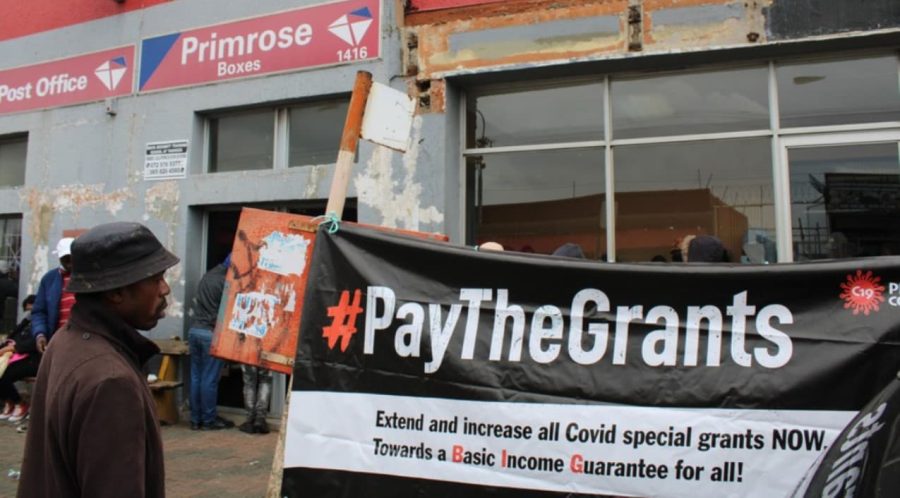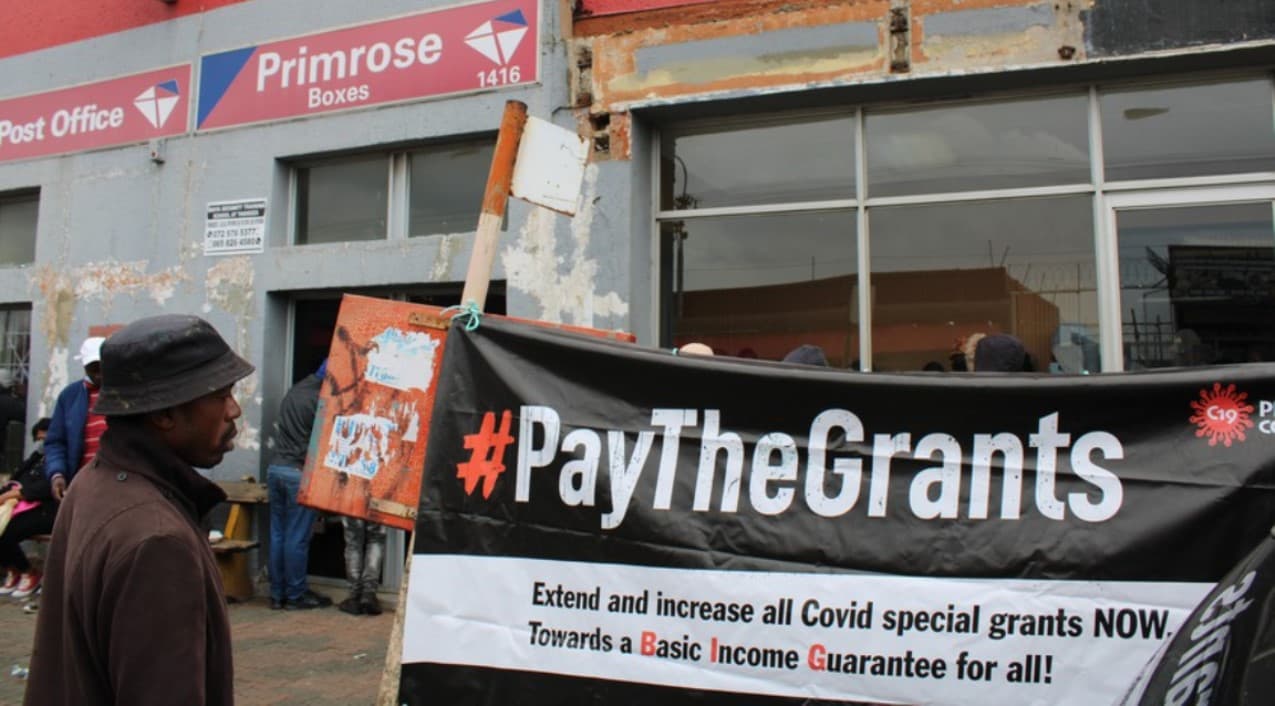
Conditions for R350-a-month grant to be challenged in court
“We are not supposed to be starving,” said Elizabeth Ruiters, deputy chairperson of activist organisation #PayTheGrants. The Institute for Economic Justice and #PayTheGrants campaign have launched an application in the Pretoria High Court. The application challenges regulations for the Social Relief of Distress (SRD) grant which, they say, exclude eligible recipients. The applicants want the […]

“We are not supposed to be starving,” said Elizabeth Ruiters, deputy chairperson of activist organisation #PayTheGrants.
- The Institute for Economic Justice and #PayTheGrants campaign have launched an application in the Pretoria High Court.
- The application challenges regulations for the Social Relief of Distress (SRD) grant which, they say, exclude eligible recipients.
- The applicants want the court to make a declaratory order that the “income” threshold should only include money received from employment, business activities or investments.
- The Institute of Economic Justice believes that the SRD grant can pave the way towards a Basic Income Grant.
Ruiters was speaking at a joint media briefing on Thursday where #PayTheGrants and Institute for Economic Justice (IEJ) announced that they have filed an application at the Pretoria High Court to challenge regulations which they say exclude many eligible people from getting the R350-a-month Social Relief of Distress (SRD) grant.
The Minister of Social Development and the South African Social Security Agency (SASSA) have been listed as respondents in the application.
The SRD grant was introduced in 2020 at the start of the Covid pandemic as an emergency measure to guard against extreme poverty and hunger. Although it is set to come to an end in March 2024, the South African government has indicated that the grant could continue.
About 20% of households in South Africa are food insecure which forces many people from these households to beg for food or rely on handouts from soup kitchens every day. According to StatsSA, 18.3 million people aged 18 to 59 live below the food poverty line of R663. Research indicates that had it not been for the SRD grant, between 2 and 2.8 million people would have fallen into food poverty in 2020 and 2021.
“The story of the SRD grant is a story of government self-sabotage,” said Gilad Isaacs, director of the IEJ, during the media briefing.
He said that due to budgetary constraints for the 2023/2024 financial year, there is only enough money for 8.5 million people to get the grant out of the 16.5 million who are eligible. “The Department of Social Development was therefore tasked with deliberately excluding eligible applicants,” said Isaacs.
Isaacs said that the Department of Social Development (DSD) and SASSA, which administers social grants, have tightened the regulations in order to remain within the budget.
“It’s a grant that, in some form, is here to stay and therefore needs to be fixed and optimised,” said Isaacs. The Institute of Economic Justice believes that the SRD grant can pave the way towards a Basic Income Grant.
People are eligible for the SRD grant when they have an income of less than R624. Every month, SASSA monitors recipients’ bank accounts to check their income. In the court application, the applicants argue that the government’s definition of “income” is too broad and currently includes financial support received from family and friends.
The applicants want the court to make a declaratory order that “income” should only be money received from employment, business activities or investments.
The application will also challenge how SASSA uses databases including those of SARS, the National Student Financial Aid Scheme and the Unemployment Insurance Fund (UIF) to verify income. The applicants say some of the databases are inaccurate and want the court to declare the database verification unlawful and unconstitutional. Bank verification does not take into account fluctuations in the income of the recipients, they say. They also want the court to prohibit bank verification.
Applications for the SRD grant can only be made online, unlike other social grants that can be applied for in person. The IEJ and #PayTheGrants say some applicants are unable to access devices or the internet and want the court to rule that in-person applications should be allowed.
They say the current appeal process does not allow for new evidence to be submitted when appealing. For example, if someone is disqualified on the basis of receiving payouts from the UIF, they cannot in the appeal produce evidence that they are not receiving UIF money. Only 0.5-0.83% of appeals lodged between July and October 2022 were successful, the applicants say. They want the court to declare the “narrow appeals process” irrational and unreasonable.
They also want the court to rule that the grant and income threshold for eligibility should be increased to take inflation and the cost of living into account.
A date for the hearing has not yet been set.
Published originally on Groundup | By By Daniel Steyn
